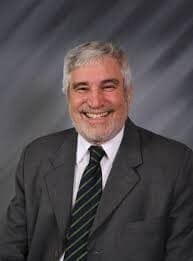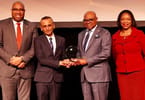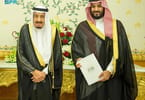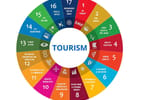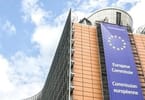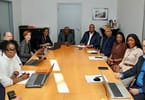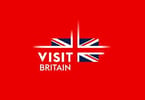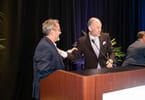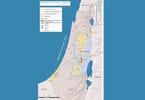Although during the month of March much of the world is still deep in winter, there is the hope that the worst of the bitter cold weather is now behind us. There is also the hope that potentially the tourism industry can go beyond the all the hassles and lockdowns due to COVID-19 and return to a somewhat normal tourism industry. March is the month when tourism professionals need to remind themselves that the essence of tourism and travel is the passion of creating “memories-in-the-making.” All too often, travel and tourism professionals have become so businesslike that they forget that the basis of a great marketing program is “a passion-for-excellence.”
In this period when COVID has created numerous regulations remembering that the industry’s job is to create beautiful memories is more important than ever. Tourism marketing is dependent on four intangibles: 1) good luck, 2) hard work, 3) a sense of integrity, and 4) a passion for people. There is little that tourism professionals can do about luck, but the other three intangibles are within the industry’s control. Tourism and travel is a field that demands that its providers come to work with a smile on their face and the desire to serve their fellow human beings.
To help you re-ignite your passion for tourism especially with the hope that we will get beyond COVID-19 crises, here are:
Several ideas to inspire tourism professional, tourism staffs, frontline personnel, and the entire tourism community.
-Think about the values inherit in the tourism industry. Ask yourself, why did you enter the field? Ask each person on your staff to develop a personal list of which benefits tourism brings to your community and then discuss the list at a staff meeting. Use the list as a way to determine which values are shared by everyone on your staff. Then seek to understand why some values are shared by only a portion of the people who work with you. At staff meetings it is a good idea start a conversation with a question such as: “What are the results that we are all seeking?”
-Be enthusiastic. It is unfair to ask salespeople or other employees, such as security or maintenance, to be upbeat about your product if managers are not examples of tourism-enthusiasm. All too often tourism and travel professionals become complacent, enter into negative cycles, or take their jobs for granted. When negative thinking enters the realm of tourism the customer’s dreams often are not realized, and the passion for tourism dies. No one wants to go to a place to “purchase a nightmare.” Think of which dreams you want to bring to the forefront. For example, are you selling the dream of great service, beautiful moments, or wonderful food? Then ask yourself how you can make your attraction, hotel, or community a place in which to realize those dreams.
-Market your community to everyone on your staff. Due to the COVID lockdowns it is all too easy to forget that not only should working in travel and tourism be fun, but we cannot promote what we do not enjoy. Too often we forget that a quality product can only be delivered by those who believe in the product. Take the time to make everyone on the staff to feel good about his or her job. Develop lists of why you are luckily to work in tourism and travel, what you enjoy about your work and how you work helps you to be a better person. People with positive attitudes about their work, do better, enjoy themselves more, and advance faster.
-Share, share, share! Take the time to share examples of successes and information with colleagues, staff members and the community. In the information age, the more we share, the more we earn. On a subconscious level, we might argue that tourism-marketing is nothing more than our helping others to share and live our passion for the experience that we are selling.
- Mepụta atụmatụ ga-egosipụta nsonaazụ. All too often we create grand schemes that may be so complicated that our staff members or fellow citizens fail to understand where we want to go. Inspire others by offering no more than four or five realizable ideas. Pick at least two projects that are easy to accomplish, and do not require a great deal of technical and administrative support. Nothing inspires a marketing operation like a success.
-Do not get bogged down in too much collective decision making. All too often tourism entities are so committed to everyone participating in all decisions that nothing gets done. Leadership has a responsibility to listen and learn, but also to decide and to make the final decision. Often leadership’s responsibility is to help an organization from getting so bogged down in details that nothing happens. It is often a good idea for tourism entity leaders to make a list of exactly what their responsibilities are and how they intend to implement these responsibilities.
-Don’t be afraid to ask hard questions and actually listen to the answers. Isolation of a travel professional is destructive to the professional’s enthusiasm, organization, and career. Ask co-workers for reports, ask for advice, and ask questions. By taking the time to ask question, not just in your office but where the tourism action is, the travel and tourism professional enters into the real world of travel. Travel professionals need to stand online, deal with their hotel’s or attraction’s services, ask directions, speak to security etc. The travel professional can never improve the clients’ experience if he/she does not experience it. By going into the real world of travel, enjoying it and chatting with our clientele we can renew our passion for tourism and once again remind ourselves that the dreams of tourism are based on the passions of the tourism professional.
The author, Dr. Peter E. Tarlow, is Vice President of the World Tourism Network na -eduga ndị Njem nlegharị anya dị mma omume.
IHE Ị GA-Ewepụ na edemede a:
- There is also the hope that potentially the tourism industry can go beyond the all the hassles and lockdowns due to COVID-19 and return to a somewhat normal tourism industry.
- Ask each person on your staff to develop a personal list of which benefits tourism brings to your community and then discuss the list at a staff meeting.
- Tourism and travel is a field that demands that its providers come to work with a smile on their face and the desire to serve their fellow human beings.

